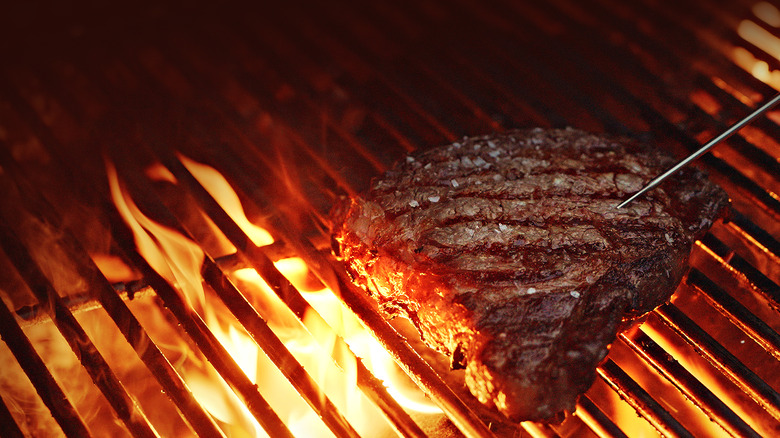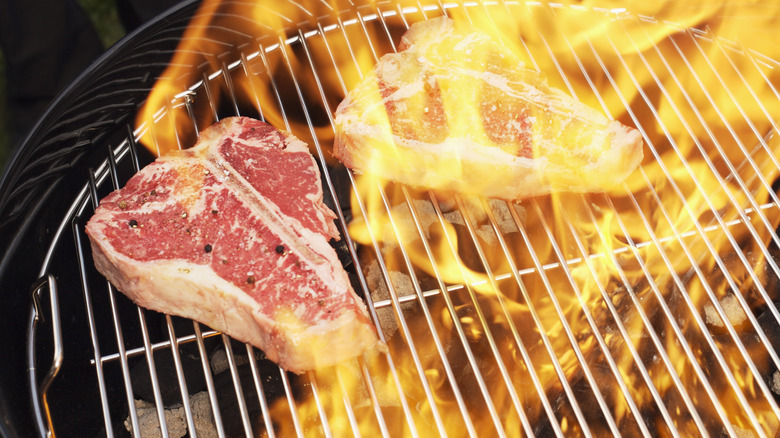How To Best Avoid Flare Ups When Cooking Steak On The Grill
If you've ever cooked a steak on an open-flame grill you may have experienced a sudden and alarming flare up of flames engulfing your steak. Not only can these flare ups be unsafe, but they can also impact the cooking process. Many things can trigger flare ups, from windy weather to the seasonings on your steaks.
Chef Michael Lomanco of Porter House Bar and Grill recently shared with Tasting Table his advice to avoid flare ups and get the best cooked steak. "Avoid flare ups, which will happen, by looking for the first signs of flare," says Lamanco. Then, he continues, "Move the steak to a cooler area of the grill, or lower the heat on your pan." You can identify when a flare up is about to begin by looking at the flames of your grill. If you notice them getting bigger or brighter, you should follow Chef Lomanco's advice and quickly move your steak over.
One of the sneakier causes of flare ups can be your seasonings on the steak. To prevent this from happening, Chef Lomanco recommends following a precise order when it comes to your seasoning. "Season with salt before cooking. Avoid pepper until it's fully cooked as pepper will burn as the steak cooks," says Lomanco. "If you marinate the steak beforehand, be aware the marinade may cause some flare ups." To avoid your marinade causing flare ups, it's recommended to pat your steaks dry before grilling to remove moisture from the outside layer.
Other ways to avoid flare ups
As mentioned, high winds can be an easy trigger for flare ups. If you want to grill outside, check the weather beforehand so you don't risk getting caught in a strong breeze while cooking. Maintaining a clean grill will also help prevent flare ups. Stuck on burnt bits can easily catch on fire and scorch your meat. It's recommended to clean your grill lightly after every use and do a full clean every six months to maintain optimal cooking conditions.
If you find yourself stuck in a big grill flare you can help suppress it by putting the lid down temporarily. Fires need oxygen to keep burning so restricting airflow by lowering your lid will help slowly bring it down. You can safely check if the flare up is ending by keeping tabs on the flame through your grill vents. Once you see it has begun to die down, you're safe to open your grill back up and resume cooking.

